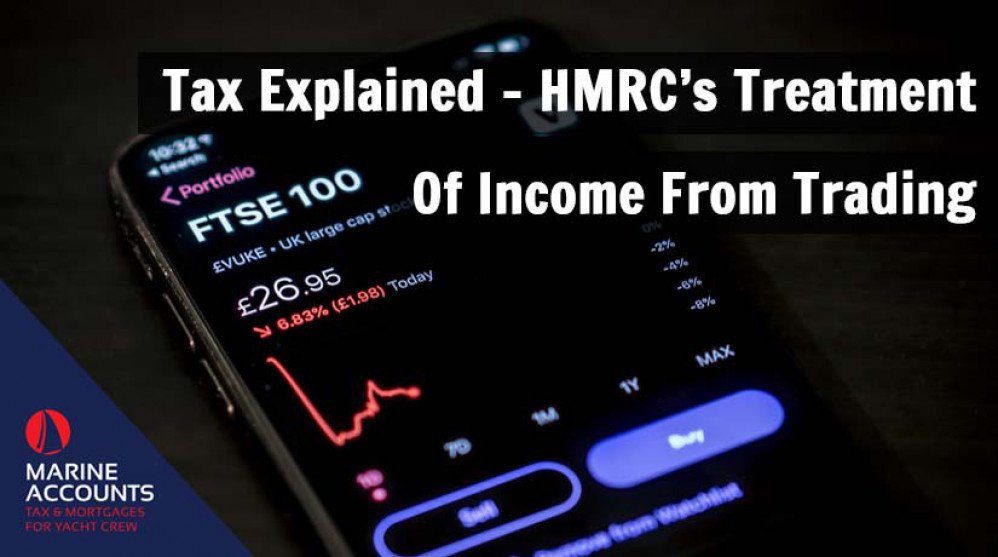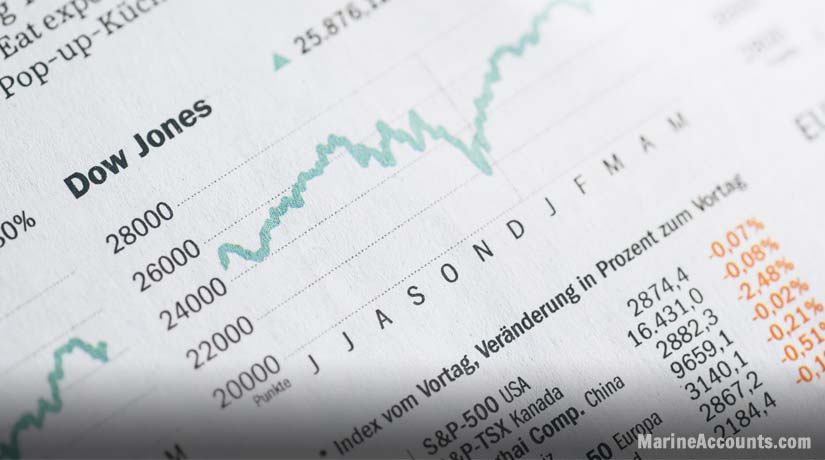Tax Explained - HMRC’s Treatment of Income From Trading
- Authors
-
-

- Name
- Patrick Maflin
-

Image source: https://unsplash.com/photos/VP4WmibxvcY
As we have done so often in the past, in this article we will look to offer clarification regarding a topic which appears to be leaving many crew members scratching their heads.
This time around we will be investigating the tax implications of trading stocks & shares.
With potential for money to be made, you can be sure that the tax authorities will have an interest.
Read on to find out more about the types of income you can expect to receive and how you can expect to be taxed.
Chapters
- Income & Tax Whilst You Own the Share
- Income & Tax When You Sell The Share
- Working Out Which Capital Gains Tax Rate You’ll Pay
- A Final Note
- Speak to Us or Comment!
Income & Tax Whilst You Own the Share
If you purchase shares in a listed and profitable company, you may find that the directors issue part of that profit to the company’s shareholders in a payment known as a dividend.
The dividend payment will be proposed by the board of directors and must then be voted on by the shareholders, with the amount or form of payment approved.
You will find that the companies most likely to issue dividends are usually larger and operate within industries which allow them to make clearer predictions of their profits, enabling them to accurately budget for dividend payments to be made ahead of time.
Tax on your dividend payment operates slightly differently than tax on your employment income.
HMRC will allow a £2,000 tax-free allowance for dividends received. The table below shows the rates of taxation over and above that level:
Tax Band: |
Rate of Dividend Taxation: |
| Basic Rate | 7.5% |
| Higher Rate | 32.5% |
| Additional Rate | 38.1% |
Income & Tax When You Sell The Share

Image source: https://images.unsplash.com/photo-1559589689-577aabd1db4f
Capital Gains Tax (CGT) is the tax imposed upon the profit made when you sell an asset.
It’s important to remember that you won’t be charged tax on the entire payment received — only the profit made over and above the amount you originally paid.
With a multitude of online platforms allowing anyone to make trades at the touch of a button, and with many crew finding themselves with some extra time on their hands at present, there appears to be a surge in the number of amateur traders in the industry with their eyes on a little extra money to top up their pay packets.
For the purposes of CGT, HMRC will treat the trading of cryptocurrencies in the same manner as any stocks or shares.
If you do find yourself with a profit from trading shares, either through a broker or through your own personal efforts, you may still find that you do not have a tax liability.
HMRC will allow you gains of up to £12,300 tax-free, and following on from there, the rate of tax you pay is dependent on the tax bracket that your income from other sources falls into.
A basic rate taxpayer will pay just 10% in tax on your gains from trading, whereas a higher rate taxpayer will pay 20%.
Working Out Which Capital Gains Tax Rate You’ll Pay
As outlined above, basic rate taxpayers pay just 10% tax on any capital gains from trading, whereas higher rate taxpayers are subject to 20% capital gains tax.
In order to calculate whether you are deemed a basic or higher rate taxpayer, you must consider the level of your taxable income.
This is your total income minus your personal allowance and any other income tax reliefs.
If you claim the Seafarers Earnings Deduction (SED), this is an income tax relief and your taxable income is therefore £0.
This means that the first £12,300 of your profit falls beneath your capital gains tax allowance and is therefore tax-free.
Any further profits up to the basic rate threshold of £37,500 will be subject to capital gains tax at the rate of 10%, with gains above this threshold liable for capital gains tax at the higher rate of 20%.
A Final Note

Image source: https://images.unsplash.com/photo-1579225663317-c0251b4369bc
It’s important to remember that whilst the above gives a good overview of the CGT implications of trading stocks and shares or gains made from other sources, the reality of the laws currently in place is far more complex.
Individual situations may be treated differently at HMRC’s assessment.
Speak to Us or Comment!
If you find that you’re unsure of how your gain will be treated, you can contact us for advice.
Get in touch with us today or let us know your thoughts in the comments section below.
Liked this article? Try reading:
The Importance of Voluntary Disclosure
Any advice in this publication is not intended or written by Marine Accounts to be used by a client or entity for the purpose of (i) avoiding penalties that may be imposed on any taxpayer or (ii) promoting, marketing or recommending to another party matters herein.


